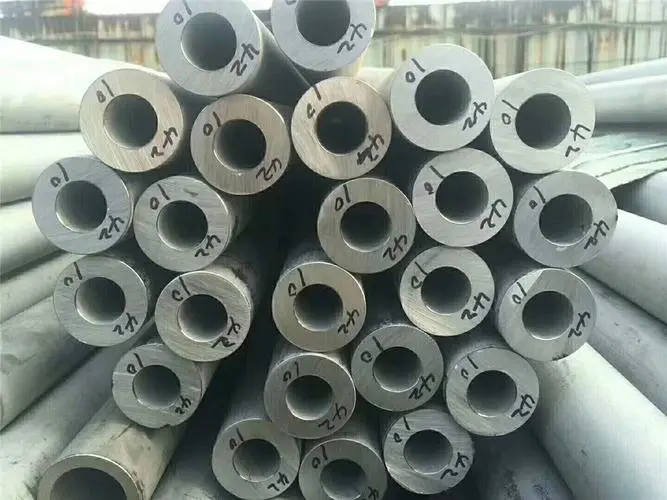The Ultimate Guide to Boiler Pipes
Boiler pipes are an integral part of any boiler system, responsible for carrying hot water or steam throughout the heating system. These pipes must withstand high temperatures and pressures while ensuring efficient heat transfer. In this comprehensive guide, we will explore the world of boiler tubes, including their types, materials, and applications, providing valuable insights for both professionals and homeowners.
- Water Tube Boiler Pipes: Water tube boilers employ small-diameter tubes to circulate water. These pipes are designed to handle high-pressure conditions commonly found in industrial applications. Water tube boiler pipes offer excellent heat transfer due to their large surface area, making them ideal for generating high-pressure steam.
- Fire Tube Boiler Pipes: Fire tube boilers feature larger-diameter tubes that contain hot gases produced by burning fuel. Heat from these gases transfers to the surrounding water through the tube walls. Fire tube boiler pipes are typically used in residential and smaller commercial applications, where lower pressure steam is sufficient.
Materials Used in Boiler tubes:
- Carbon Steel: Carbon steel is a popular material choice for boiler pipe due to its strength, durability, and cost-effectiveness. It can withstand high temperatures and pressures but may be susceptible to corrosion. Regular maintenance and protective coatings are essential to prevent rust and ensure the longevity of carbon steel boiler pipes.
- Alloy Steel: Alloy steel pipes contain additional alloying elements like chromium, molybdenum, or nickel. These alloys enhance the strength, temperature resistance, and corrosion resistance of the pipes. Alloy steel pipes are often used in high-pressure and high-temperature boiler applications, delivering superior performance and reliability.
- Stainless Steel: Stainless steel offers exceptional corrosion and oxidation resistance, making it an excellent choice for boiler pipes that come into contact with water or steam. It provides outstanding strength and durability, even at elevated temperatures. Stainless steel boiler pipes are commonly used in applications where corrosion resistance is critical, such as in food processing or pharmaceutical industries.

Applications of Boiler Pipes:
- Industrial Boilers: Boiler pipes play a crucial role in various industrial settings, including power plants, refineries, chemical plants, and manufacturing facilities. They facilitate the generation of steam for power generation, process heating, and other industrial operations.
- Residential Heating Systems: Boiler tube are essential components of residential heating systems, particularly those using hot water or steam radiators. These pipes distribute heat throughout the building, ensuring comfortable indoor temperatures during colder months.
- Commercial Buildings: Many commercial buildings, such as offices, hotels, schools, and hospitals, utilize boiler systems for space heating and hot water production. Boiler pipes efficiently transport hot water or steam to different areas within the building, providing reliable heating and hot water supply.
Maintenance of Boiler Pipes:
- Regular Inspections: Perform routine visual inspections to identify any signs of corrosion, leaks, or damage. Timely detection and repair can prevent further deterioration and potential failures.
- Cleaning and Descaling: Boiler tubes can accumulate deposits and scale over time, reducing heat transfer efficiency. Regular cleaning and descaling help maintain optimal performance and prevent blockages.
- Corrosion Protection: Apply appropriate protective coatings or linings to carbon steel boiler pipes to prevent rust and corrosion. Regular inspections ensure the integrity of these coatings.
- Water Treatment: Implement proper water treatment measures to minimize scale formation and corrosion within the boiler system. This includes monitoring water quality, maintaining appropriate pH levels, and using corrosion inhibitors.
- Professional Maintenance: Engage qualified professionals for periodic maintenance and servicing of the boiler system. They can conduct comprehensive inspections, perform necessary repairs, and ensure compliance with safety standards.
Conclusion: Boiler pipes are vital components of heating systems, responsible for transporting hot water or steam. Understanding the different types of boiler pipes, selecting suitable materials, and implementing proper maintenance practices are crucial for ensuring efficient and safe operation. By following recommended maintenance procedures and working with experienced professionals, you can maximize the lifespan and performance of your boiler pipes, contributing to a reliable and energy-efficient heating system.
We supply various kinds of steel pipes including carbon steel, alloy and stainless pipes. We offer pipe ranging in diameter from 1/4” to 48”, in numerous wall thickness, and with various finishes as well as different steel specifications such as API,ASTM,ASME,JIS and EN with among others. With our stock capacity and good ties with major steel mills in china, you can believe that we have the steel pipe and other steel products that you need – when and where you need them! We can assure you a very fast delivery in about ONE WEEK and free from worries.
Get a quote Or price, Contact us or Email.
Whatsapp/Phone/Wechat: 0086 13953344264 Email: info@azure-b.com

